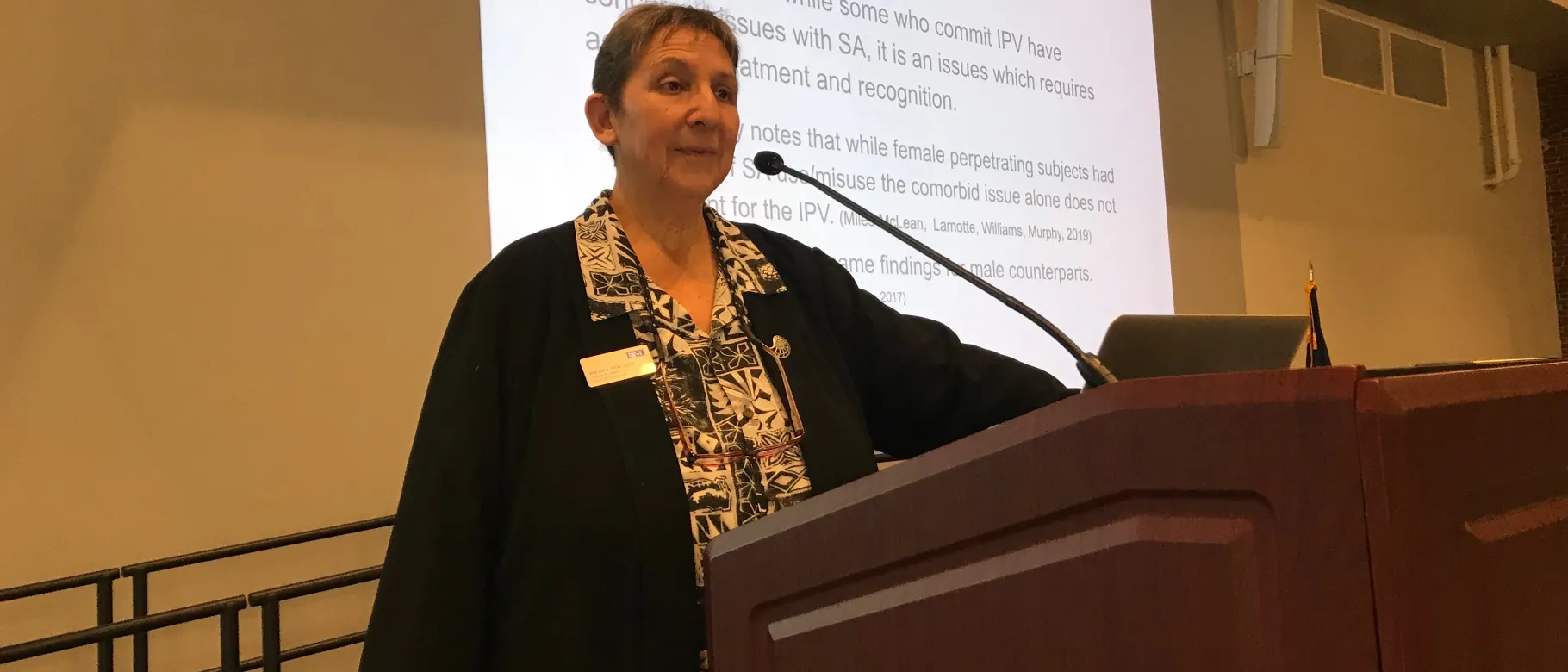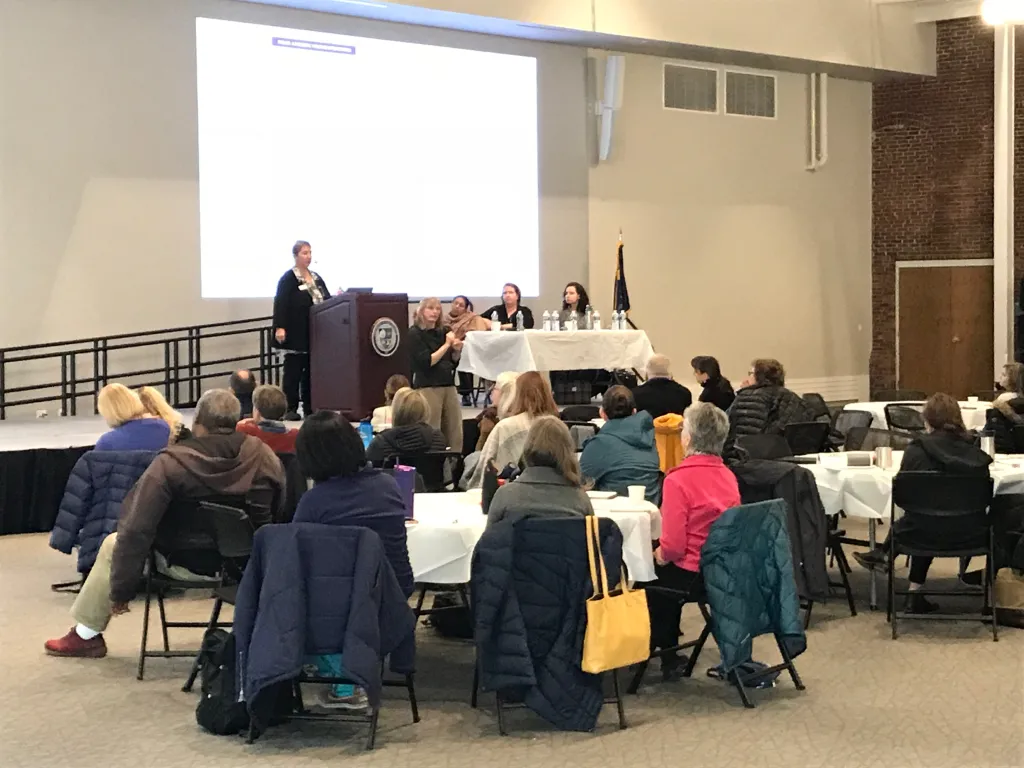UNE and USM team up to provide domestic violence training for social workers

The Schools of Social Work at The University of New England and the University of Southern Maine have teamed up to provide intimate partner violence/domestic violence training for social workers.
“Intimate partner violence was never part of the curriculum in social work programs and we know it's a pervasive issue in our society and in our communities,” explained Amy Coha, M.S.W., LCSW, clinical professor in UNE’s School of Social Work. “Providers working with individuals, working with children, and working with families are not asking the right questions and are not identifying that there’s a situation where the person in front of them has been abused or terrorized.”
Under new state rules social workers, counselors, and psychologists must have 12 hours of domestic violence training in order to become licensed or renew their license as a Licensed Clinical Social Worker (LCSW).
“Survivors and perpetrators of intimate partner violence (IPV) cross paths with social workers in a multitude of ways outside of therapy,” commented Donna Wampole, D.S.W., LCSW, assistant professor in USM’s School of Social Work. “It is important for all social workers and social work students to be educated in the signs of IPV as well as appropriate resources.”
The training addresses screening, referral and intervention strategies, and provides information about community resources, cultural factors, evidence-based risk assessments and same-gender abuse dynamics.
“We want providers to recognize the issue, provide safety and support for survivors and their children, and to help hold individuals who abuse their partners accountable for their behavior,” Coha stated.
The training is being offered for free to those working with victims of domestic violence.
According to Coha, providing the training free is a way to give back to providers who support and supervise UNE students in the field through internships.
“We consider community social workers who supervise our students as adjunct faculty, because without those placements and without that supervision, you can't have a school of social work,” Coha said.
This is the first time UNE and USM’s Schools of Social Work have collaborated on training. An initial session was recently held at UNE’s Innovation Hall. A second session will be held at USM in the spring.
“The training provides time and space for an in-depth discussion of gender-based violence, an issue that does not receive enough attention even though many social workers contend with it every day,” stated Hermeet Kohli Ph.D., M.S.W., USM’s Master of Social Work program coordinator.
The new requirements take effect in Maine in January. Only two other states, California and Florida, require the training.
Moving forward, the training will be offered as part of the curriculum in UNE’s School of Social Work.
